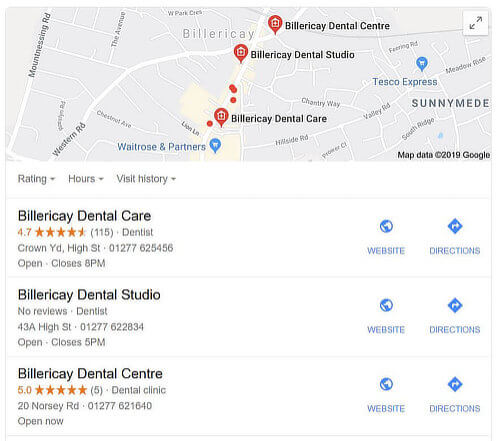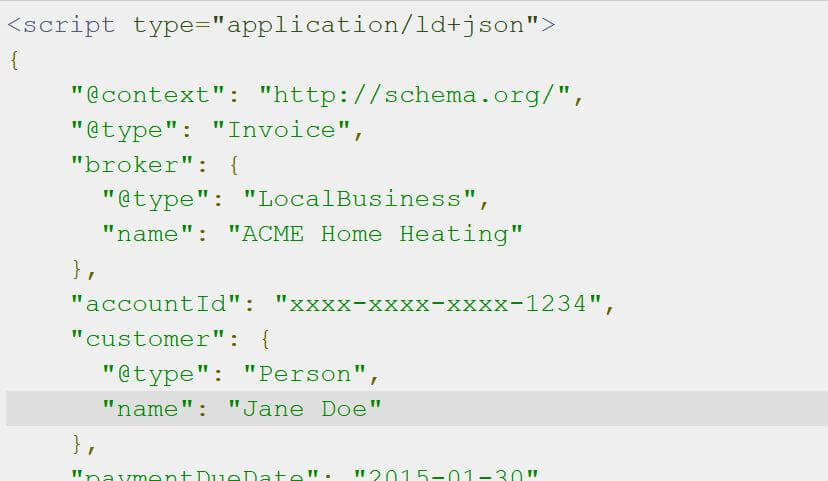
5 Things Every Local Business Should be Doing to Generate More Exposure on the Internet
If your business operates in a particular town, city, or region, local search engine optimisation (SEO) and digital marketing are crucial to landing new customers. As the operator of a local business, you can effectively use the Internet to increase sales, enhance profitability, and benefit from a more successful customer base. In this post, we will discuss 5 things you should be doing to generate more local exposure using the Internet.
1. Citation Building
Citation building is a relatively easy method you can use to kick-start your local SEO campaign. The practice involves getting your business name, physical address, and telephone number featured on local business and classified websites.
The reason behind citation building is simple: search engines want to see your business is legitimate, has a real physical address that can be confirmed from multiple sources, and can be contacted using a variety of methods.
Having consistent citations across the web means search engines will see your business as directly related to a local area. This improves your ability to rank for keywords related to your industry and locality. E.g. “plumbers in Oxford”.
Popular websites where you can gain citation listings include Yelp, Yellowpages, and even Facebook. Citations do not require a link back to your website to be effective. It is the consistency of information that is most important. Make sure your business name, address and phone number appear on your website and then ensure that any directory listings match those details exactly.

2. Google Business Listings
One of the most crucial things you need to do to excel at local SEO is to claim your Google business listing (known as Google My Business). This allows you to engage with customers on Google free of charge, plus gain a handy map reference.
But just claiming your business listing is not enough. You need to actively optimise it for the best possible results. This is key to performing well for local searches and for securing new business. By fully completing your profile, adding photos, and getting customers to give positive reviews, you will be well on the way to local SEO success.
The majority of people search on Google when looking for a product or service in their local area. If you appear for key search terms, have great reviews and good photography of your product offering, your enquiries are sure to increase. This is especially the case for passing trade, where customers search to find local shops, services, and amenities in their immediate vicinity.

3. Content Creation
Ensuring your business creates regular and relevant content is important for local SEO and audience building. Informative articles, video demonstrations, and company news updates can attract and sustain a customer base.
Getting published on other authoritative websites can also help massively with local SEO. Creating content on localised websites by guest blogging is an effective tactic. One example would be an article highlighting the launch of a new product on your local chamber of commerce website. But local industry magazines and influencers are also worth considering for article pitches.
It is also worth remembering that social media can form part of your content creation activities. Sharing valuable content with others can increase your reach and help you connect with customers. Joining local networking groups on social media is a great place to start if you have previously neglected Facebook, Twitter, Instagram, and other social juggernauts.

4. Reputation Management
Reputation management relates to acquiring and managing customer reviews on the Internet. Most people seek out reviews before investing in a product or service. So it makes sense to manage your reputation as best you can to generate extra sales.
Regular reviews show your business is active and trading. Reviews also inform potential customers about the type of service they can expect. Positive reviews have the potential to give your business the boost it needs to leapfrog competitors.
Good reviews on Google, Trustpilot, and other websites can help you drum up new business. Even if some reviews are negative, showing a willingness to remedy a situation can minimise any impact and demonstrate good customer service.
It is important to also consider social media as part of your reputation management efforts. Social reviews on Facebook are especially important. Try and generate good reviews and respond to messages promptly to maintain your online reputation.

5. Inclusion of Schema Markup
This one is a little more technical but there are so few local businesses doing this it is a quick win.
Ensuring your website can handle Schema markup gives your local business an advantage over competitors on search engines. Schema markup provides search engines with structured details about your website’s content.
When an engine crawls your website, having structured markup means search engines can pinpoint useful ‘microdata’, then present or use this during search queries. Typical examples include your address, prices, list of services, opening hours, or dates of business events.
Embedding structured data can help you achieve better local SEO. This is especially the case if you use Schema to pinpoint relevant location information. For location-based search queries, Schema is one of the best methods you can use.

Conclusion
So there we are, five activities that you can take action on today to start delivering more customers or clients to your local business.
P.S. Look below ⇓ for a very special offer for the first 5 local business owners who apply.
Need help?
Limited Time Offer
For the first FIVE local business owners to apply, we will complete a free audit of your business’s online presence and report on the important metrics that impact when and how your business is seen.
Simply complete the form below to get your free audit.

